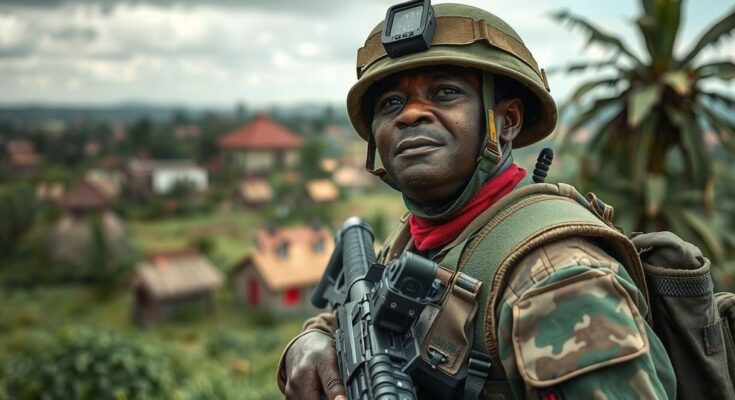The Congolese Army captured Rwandan soldier Private Hakizimana Iradukunda Jean during clashes near Mambasa Hill on December 21, 2024. This incident raises concerns about Rwanda’s alleged support for M23 rebels, to which Rwanda has responded with accusations against the DRC for supporting anti-Rwandan elements. The ongoing tensions highlight the fragile stability of the Great Lakes region, necessitating dialogue to avert further conflict.
On December 21, 2024, the Armed Forces of the Democratic Republic of Congo (FARDC) captured Private 1st Class Hakizimana Iradukunda Jean, a Rwandan soldier, during clashes near Mambasa Hill. The soldier, who was reportedly part of a contingent trained at Rwanda’s IWAWA/Karongi Training Center, was believed to have crossed into the DRC as part of alleged rebel operations involving the M23 group. Congolese military authorities claim that this incident underscores Rwanda’s direct involvement in supporting the M23 insurgency, while the Rwandan government has denied these allegations, asserting that their actions are defensive in nature against threats posed by armed groups in the region.
The persistent conflict between the Democratic Republic of Congo and Rwanda is rooted in historic tensions and mutual accusations of supporting rebel groups. The FARDC’s capture of Private Hakizimana highlights the ongoing instability in Eastern Congo, particularly regarding the M23 rebels, who have been a major source of conflict in the region. The situation is exacerbated by reconciling the allegations of Rwandan military support for these rebels counter to Rwanda’s accusations against the DRC for harboring groups like the FDLR, which Rwanda labels as a genocidal organization.
The capture of Private Hakizimana Iradukunda Jean illustrates the complexities and challenges in the relationship between the DRC and Rwanda, with both nations accusing each other of fostering instability through support for armed groups. As tensions remain high over these allegations, the potential for further conflict increases, making it imperative for both governments to engage in dialogue to address the underlying issues contributing to this ongoing crisis in the Great Lakes region.
Original Source: chimpreports.com




